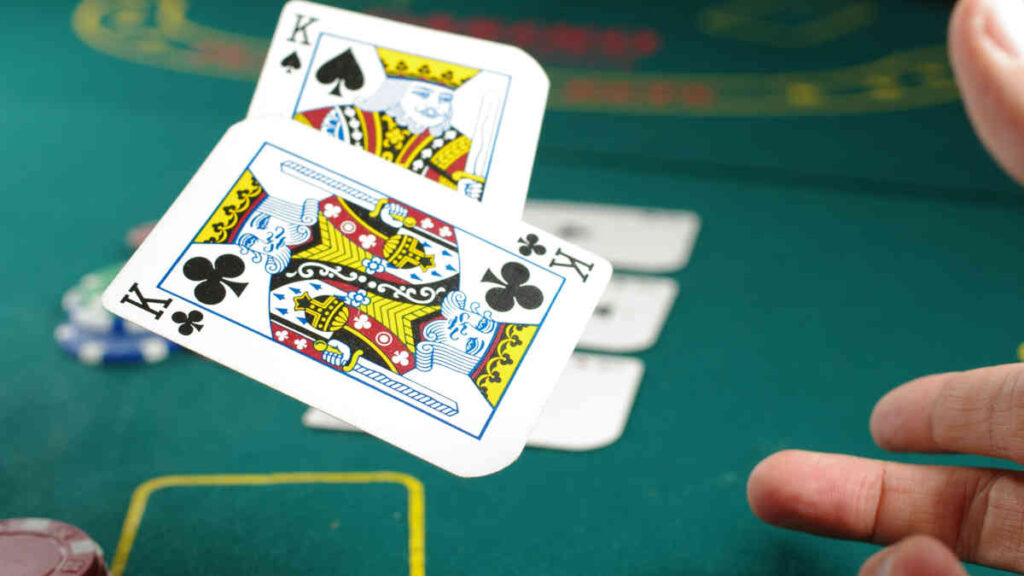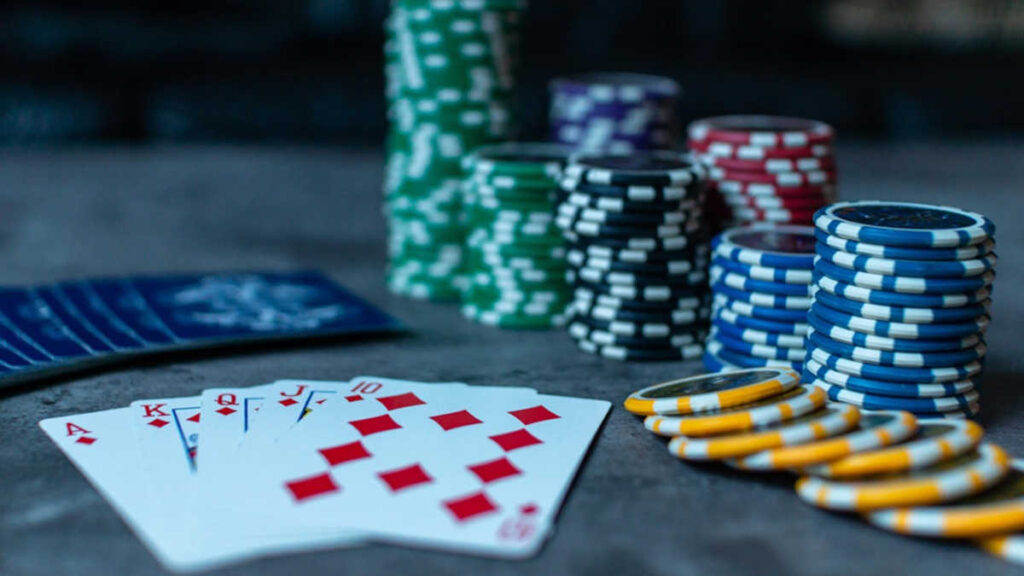Image source: Pixabay
Poker may look like a simple card game, but anyone who has spent real time at the table knows it teaches habits that follow you everywhere. You learn how to judge situations, stay calm, read people, and pick your moment.
These habits do not stay locked to one game. They move with you when you play board games with friends, try out new card games, or load up your favorite computer RTS. Poker sharpens how you make decisions, and it helps you spot things others might miss.
When you really break it down, the poker table becomes a place where you learn steady thinking. That is why so many people say poker helps them far beyond the cards in front of them. The same steady approach carries into all sorts of games that reward patience, quick thought, and strong focus.
How Poker Habits Carry Into Other Types of Games
Poker teaches you to think a little further ahead, judge your situation with care, and react to what others are doing. These habits matter in everything from strategy board games to card titles and online casino options.
Poker has many variations found at several different secure and fun online pokies sites, including Seven Card Stud, live dealer tables, and simplified options like video poker. Each one teaches a small set of habits that transfer to other areas of life.
For instance, Texas Hold’em teaches hand selection, steady play, and reading the table. This helps you judge situations in board games and strategic card titles.
Pot Limit Omaha trains you to think about several possibilities at once since every hand carries more draws. This helps you in fast-thinking video games and titles that change quickly.
Seven Card Stud teaches memory and watching exposed cards. These habits help you keep track of what others are doing in long board games.
Five Card Draw teaches bluffing and reading reactions when information is scarce. This helps in social deduction games and card titles where guessing matters.
All these poker variants sharpen your mind in many small ways. Those small habits show up whenever you pick up a controller, sit down at a board game, or join a card table.
1. Reading Opponents and Reactions
One of the biggest skills poker teaches is how to notice what others might be planning. You watch how players move their chips, how quickly they act, and how their patterns change. Over time, you build an instinct for how people behave when they feel confident or when they want to hide something.
This same instinct helps in board games where you must guess what someone intends to do next. It also helps in social games where players try to trick one another.
Even in competitive video games, this habit helps you guess when an opponent is about to rush, hold back, or try something bold. Learning to read another person gives you a quiet edge in many situations because you react sooner and with more steady control.
2. Decision-Making With Limited Information
Poker never gives you the full picture. You work with only a few cards, mixed clues, and reactive situations. You learn to act even when the full story is not in front of you.
This habit fits neatly into strategy board games, survival titles, card battlers, and even fast online matches. Many games force you to choose your next move without everything laid out neatly. Poker prepares your mind for that type of pressure.
You also learn to avoid snap choices when they serve no purpose. Poker teaches you to pause, take a breath, look at what you know, and decide calmly. That calm way of reacting shows up again when you play tower defense titles, resource games, or anything where a quick wrong move can cost you.
3. Patience and Timing
Good poker players do not act just because it is their turn. They wait until the moment feels right. They fold hands that look tempting and hold back until a better spot arrives.
Timing matters in almost every game you play. If you rush into a move in a board game, you may give someone else an easy victory. If you push too early in a competitive video game, you may walk straight into a trap.
Poker trains you to pick the moment that matters. You learn to wait a little longer, save your resources, and make your move when it has real impact. This patient way of playing carries over smoothly to long rounds, raids, tactical titles, and even card trading games where timing is everything.
4. Emotional Control
Every player has felt frustrated at some point. Poker teaches you to avoid letting that feeling take charge.
You sit through rough hands, wild swings, and tough beats. With time, you learn to keep your thoughts steady, even when things turn against you.
That same self-control helps you in competitive video games where matches can turn fast. It helps in long board game sessions where a small setback could make you feel rushed. Emotional control keeps your thinking clear so you play better for longer.

5. Paying Attention to Patterns
Poker is full of patterns. Some players act quickly when they feel strong, and others hesitate. Some lines tend to repeat from round to round. Once you start noticing these things at the table, you notice them everywhere.
This attention to detail helps with strategy board games and card titles that reward long-term thinking and quick thinking skills. It also helps in many video games where enemies or opponents repeat certain moves. You learn to pick up signals that others may ignore, which helps you plan ahead.
6. Handling Pressure
Poker places you in tight situations often. You may have a small stack, face a strong opponent, or deal with a round that turns suddenly. These moments train you to breathe, hold steady, and act carefully.
Plenty of video games put you in similar situations. You must aim well under pressure, solve a puzzle quickly, or make a smart choice before the timer ends.
Poker’s steady pace prepares you for this, building resilience one strategic move at a time. You stay calmer than most in these moments, which helps you win more often.
Conclusion
Poker is more than a card game you play for fun. It becomes a teacher without you noticing. Once you start seeing how these habits show up in other games, you begin to appreciate what the table has taught you.
The cards may change, the setting may vary, and the players may change, yet the habits built at the table follow you everywhere and make your time with any game more rewarding.
